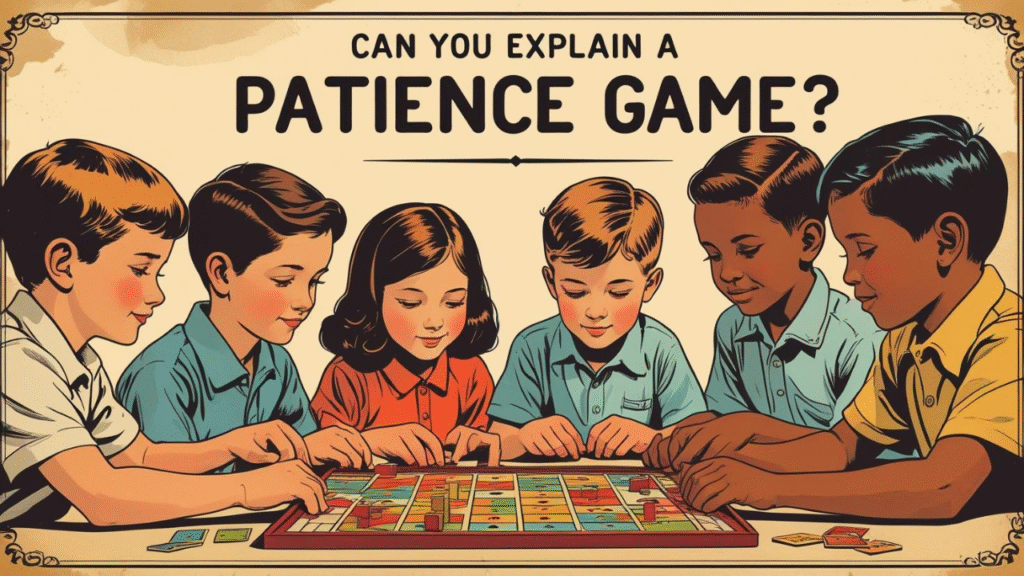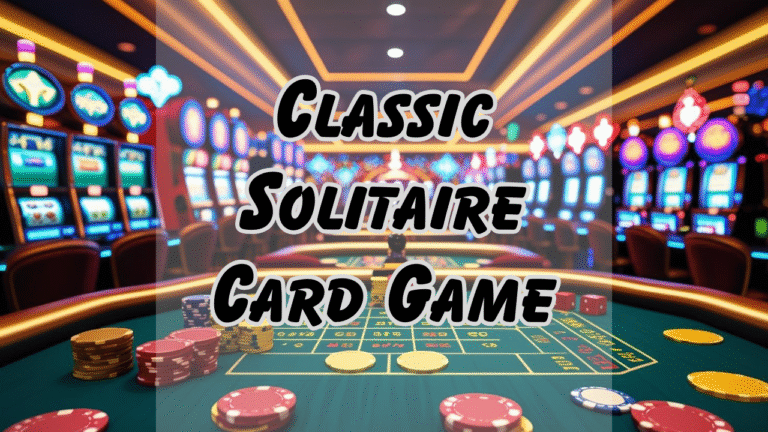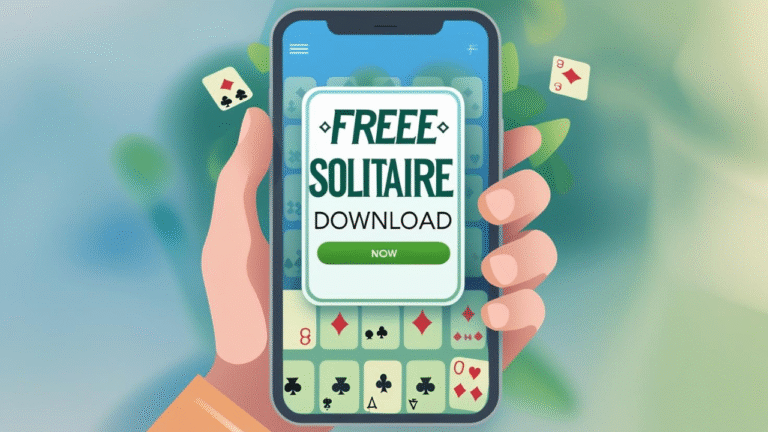honestly if you Ever feel stuck in the middle of the day and just feels like your brain just won’t cooperate? That’s where a quiet card game like patience game can surprise you completely —it’s so simple, but it resets your focus and sharpens how you think, and somehow leaves you feeling more in control

Surrounded by a culture focused on rapid gratification, the “Patience Game” is quite an eerie and valuable contrast. This mellow, old friend, weathered the years as both a pastime and cleverly dressed intellectual challenge, is just about as familiar as solitaire. Whether it is to unwind after a long day or hone your strategic thinking skills, playing patience games can yield real benefits for your mind and emotions.
Why are patience games so effective? How can they help your mind in a positive way? And let’s also go into some ways that you can begin playing now with intention and certainty.
Can You Explain a Patience Game?

Playing a single deck of cards alone, the goal of a patience game—more commonly known as Solitaire in most parts of the globe—is to arrange the cards in a specific sequence, usually according to suit or numerical value. Players that exhibit strategic preparation, care, and emotional self-control tend to do better in patience games than in games where speed or luck play a larger role.
Solving a puzzle with limited steps and insufficient information is a commonality throughout several variants, such as Spider Solitaire, Klondike, and FreeCell.
7 Ways Playing Patience Games
Help Your Brain Function Better
Memory, pattern recognition, and sequential reasoning are all put to the test in Classic card games like Patiencegames. You can use them to sharpen your critical thinking skills, as well as your long- and short-term memory.
Improving Concentration and Maintaining Focus
Every move of the cards has to be thought through carefully since there are no speed-hungry distractions. The capacity for concentrating more keenly in virtual environments can be built up to translate into better concentration in real life.
Enhances Self-Control Abilities
Avoiding acting on impulse is the definition of Best Patience games online. You acquire the ability to deal with your emotions and hold on for the opportune time to act instead of reacting impulsively in these games.
Helps with Problem Solving
A mixture of strategic insight and flexibility is needed to solve every game. Practice thinking about all your possibilities prior to making a choice so that you have developed a skill that will benefit you both in games and life.
Encourages Serenity and Focus
You can use the game as a meditation tool because to its repetitive and low-risk nature. Reducing stress and quieting the mind, it’s a soothing habit.
Encourages a development mindset
You can review your choices from earlier sessions at any time. Repetition and practice make perfect, and they foster perseverance and a want for more.
Encourages Creative Problem Solving
The absence of encouragement compels the players to have greater self-dependence, compelling them to be independent and confident in their ability to make decisions.

The Five Essential Steps How to play Patience card game a Simple Game of Patience
You don’t need a deck of play cards that’s older than you are to become a patience master. These directions will introduce you to Klondike, the most widely used one:
Step 1: Determine Your Goals
The goal is to move all of the cards from the top deck to the bottom deck, sorted by suit and king-to-ace.
Next, set up the Tableau
Construct seven columns using cards in ascending order: 1 card in the first column, 2 in the second, and so on. One column at a time is turned face up.
Third, Use Your Good Judgement When Investing
Turn over the cards one by one from the stack. Play only the top card to not block moves; use it strategically.
Fourth Step: Transfer the
Arrange the red and black cards in descending order of size; for example, place the black 9 above the red 10. When possible, turn the face-down cards over to unveil their options.
Step 5: Building Strong Foundations
Put the aces in the foundation in the order of their suits to start. Be patient; sometimes it is a good idea to leave a card on the table for when you have more choices later.
Everything You Need to Know About Patience Games in One Brief Answer
Q1: Can mental health gain from playing patience games?
Yes. Including them in your daily routine will make you relax, concentrate better, and be more mindful.
Q2: Can patience games help children?
Yes. Even though lesser versions are advisable for young ones, it is helpful to instill logical thinking and patience early.
Q3: how useful are computer games as opposed to old card games?
Yes. Although they do not have the sense of touch, computer games provide the same intellectual challenge and are easier to access.
Q4: What is the normal learning curve for patience games?
Players usually notice improvements after a week or two of regular practice. The strategy goes deeper as time goes on.
Q5: of all the patience games which one is the most difficult?
Its more complex strategy and handling of numerous suits make Spider Solitaire seem pretty challenging.
Conclusion: Patience Has a Game That Teaches For Themselves
The patence game teaches self-control, analysis, and improvement from its simple-sounding rules. Whether you want to be a casual player or just a serious planner, this game is sure to sharpen your mind and teach you how to calm down amidst this hasty world.
Being able to wait—and think—may be your greatest underutilized competitive edge in this speed-is-king era.

Ready to go? Start with a classic Klondike or challenge yourself with Spider Solitaire, and see the change that happens with every thoughtful move.






